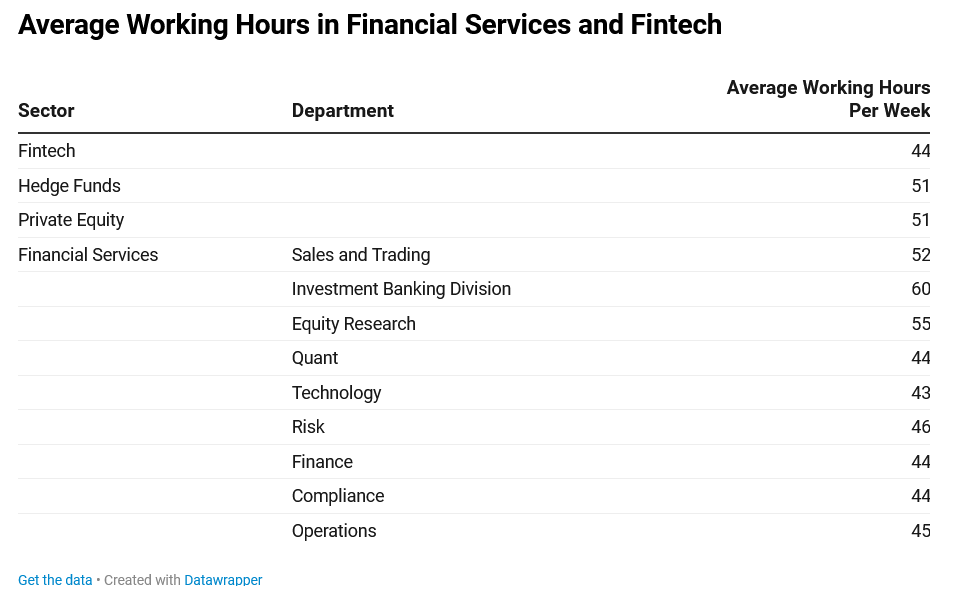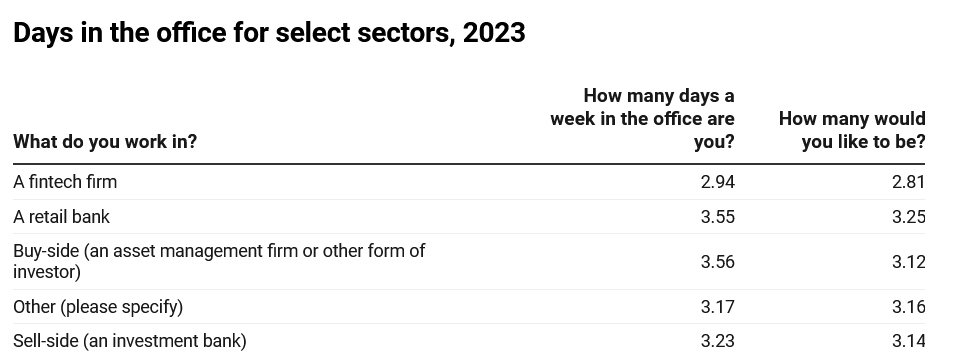
Working hours in fintech: How it compares to financial services
Written by efinancialcareers.
For many looking to transition to fintech, the cultural shift is a big factor. Movers are tired of the dreaded 90-hour work weeks spoken of in investment banks. But is fintech that much better?
Our recent eFinancialCareers fintech survey had responses from nearly 1,200 people either already working in fintech or looking to move into it. From this, and the working hours reported in our compensation report, we can see that fintech careers aren’t quite the massive shift some see them as.

If you’re in investment banking, sales & trading or equity research, moving to fintech would be a significant reduction in hours. Other departments aren’t quite as dramatic a down shift. Technologists in banks work fewer hours than average working hours in a fintech.
But a key factor where fintech curries some favor is its approach to working from home. WFH isn’t for everybody, but for those that like it, fintech is the premier destination in finance.

Fintech is the only category in financial services to average less than three days in the office per week. While the sell-side is in the office far more, comparatively, it’s the buy-side and retail banking where time in the office is most significant. However, fintech is also the only category where employees want to be in less than three days on average, so clearly the office environment still has its fans.
Some fintechs also offer short working weeks. Bolt, for example, utilizes a four-day working week and 40% of the survey’s respondents said it was on offer for them too.


